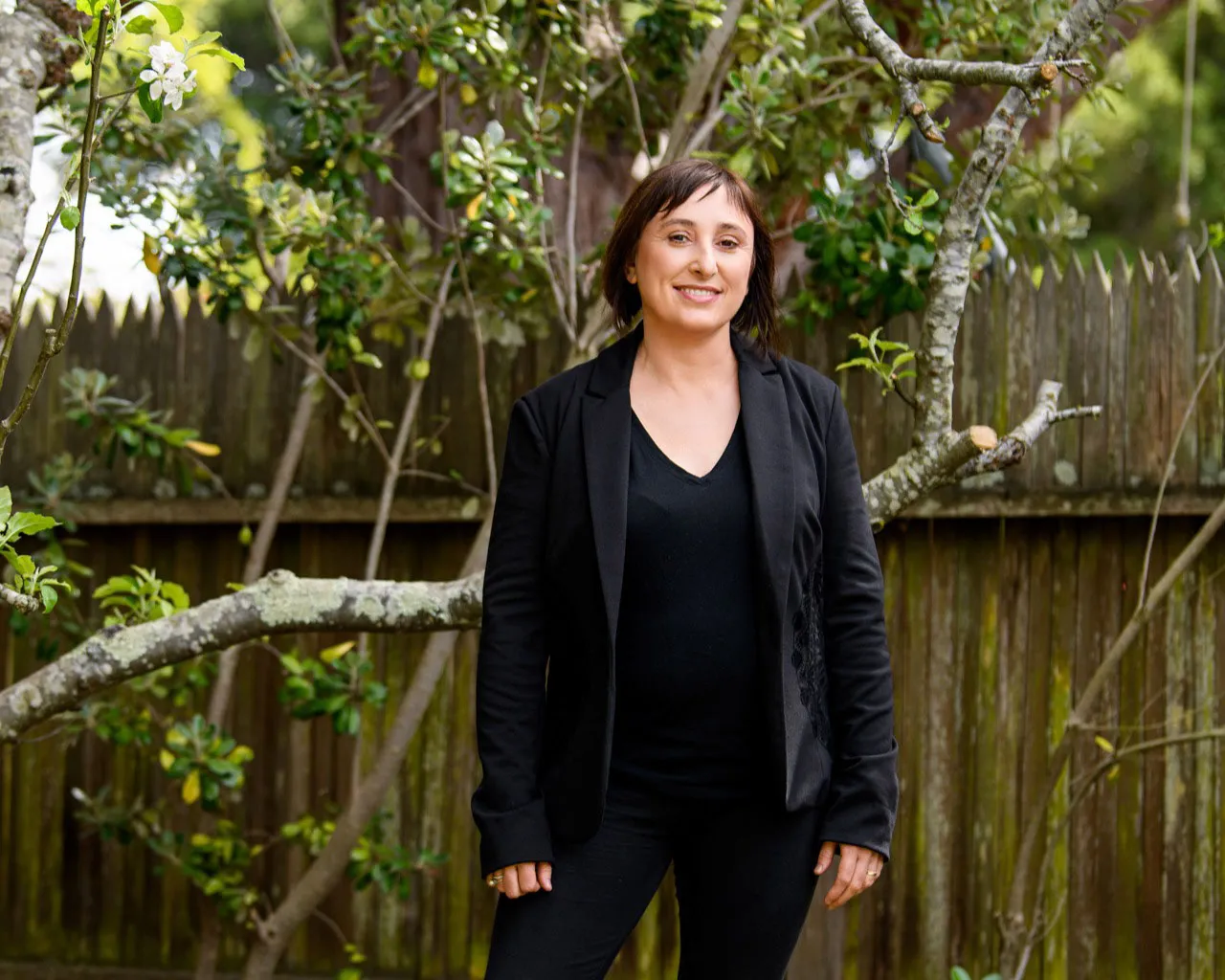Professor, Activist
Anat Balint, the inaugural Jeffrey B. Plevan Chair in Israel Studies, is guided by the Jewish value of tikkun olam, or ‘repair of the world.’

Anat Balint, the inaugural Jeffrey B. Plevan Chair in Israel Studies.
Photo provided by Anat Balint
When Anat Balint teaches her undergraduate course on modern Israel, she leads with documentary films. The journalist-turned-media scholar wants her students to see the country where she was born and raised from the perspective of Israeli filmmakers.
Balint, the inaugural holder of the Jeffrey B. Plevan Chair in Israel Studies at the University of Arizona Center for Judaic Studies, came to Tucson last August from San José State University, where she’d coordinated the Jewish studies program since 2019. But before San José State, she’d spent most of her life in Israel — and her early career in the Israeli media.
“What I’m trying to do is to offer a look into Israeli society from within as much as possible,” says Balint, whose students not only watch the documentaries but also speak to the filmmakers. “Talking about Israel is really always looking into Israel.”
Her path to academia hasn’t been typical. Balint started as a journalist in her teens, during her period of service in the Israeli army. She then worked in public radio, in television as a content editor and in print and digital media, where she landed a reporting position with Haaretz. At the Tel Aviv-based liberal newspaper, Balint’s beat was the media: She became a reporter who wrote about trends in reporting.
Balint says that as she wrote about the media for Haaretz, she found herself wanting to explore ideas more deeply than her day-to-day work allowed. She enrolled in the doctoral program in media and communication at the University of London, defending her dissertation in 2016.
Her area of focus in graduate school: what is commonly termed “branded content” but is described by Balint as “stealth advertising.” These “manipulated messages,” she says, blur advertising and editorial content, making it harder to distinguish one from the other.
“I wanted to write about a topic that was interesting for me,” she says. “And I felt like it also had a public value to write about it, which I think is something that should always be in an academic’s mind: ‘How is this relevant? How is it relevant to life? How can it change society for the better?’”
Balint still thinks about stealth advertising, which she describes as “a huge problem” in today’s media landscape. But these days, her focus is on the political economy of the media: how politics and the media shape one another, especially as the dominant modes of media shift. She says that in Israel and other nations, the media and politics are inseparable.
“In general, with the rise of populism all over the world, questions about the media and how it’s either used or abused for the rise of populist leaders, I think, is a big one,” she says. “The decline of old media and the rise of social media — what did it do to democracy?”
The professor’s belief that academic work should hold public value — that it should be more than intellectually engaging — also is reflected in her activism around media ethics and freedom of the press in her home country. Though Balint is far from Israel, she’s remained involved in advocacy work, a choice that she says is rooted in the Jewish principle of tikkun olam, which translates from the Hebrew to “repair of the world.” Tikkun olam, she says, is a guiding force for many Jewish people.
“It’s a core value of making the world a better place, as a value of Jewish life,” Balint says.
As the inaugural Plevan chair, Balint intends to reach beyond the black and white terms that sometimes dominate conversation around Israel, a country that she says stirs “very heated debate that comes from deep emotional feelings.” Her first group of undergraduates, she says, hailed from all over the world — China, the Middle East, East Africa and the United States, including a few Jewish Americans. Their classroom conversation “touched everything.”
“Israel is a very emotional topic for many people, Jews and non-Jews,” she says. “As an Israeli native, what I sense is often missing is knowledge and understanding of complexity and nuances. I often feel that people talk from a very distant position, not understanding the fullness of the reality.”
Balint also is teaching a course on identity and immigration in Israel and says that the Center for Judaic Studies, all told, has been “fantastic in supporting me and my family” since her summer arrival in town.
And so her journey through the media landscape continues — once a media member, today a media scholar. For her, the disciplines, seen as being in opposition by some, will always be closely linked.
“It’s extremely important to have people that had their first career in the field and then transitioned to be those who are looking at the field and trying to make sense of it,” Balint says. “I see it as a benefit — the things that I’ve learned on the media and the intimate ways in which I know it as a worker in the media.”
